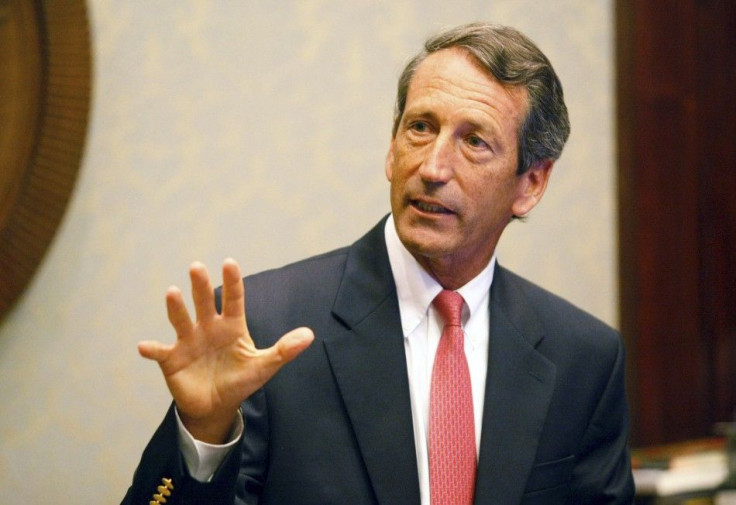Republican Presidential Candidate Drops Out, As Mark Sanford Suspends Campaign Against Trump

Republican opposition to Donald Trump 2020 re-election campaign dwindled down to two candidates Tuesday, as former South Carolina Gov. Mark Sanford officially suspended his campaign. The announcement came after a little over two months of campaigning failed to make much headway in Sanford's longshot bid.
Sanford said "you've got to be a realist," while blaming impeachment proceedings for taking over the narrative surrounding the race.
“I am suspending my race for the Presidency because impeachment has made my goal of making the debt, deficit and spending issue a part of this presidential debate impossible right now,” Sanford said in a statement from the New Hampshire statehouse. “From day one, I was fully aware of how hard it would be to elevate these issues with a sitting president of my own party ignoring them. Impeachment noise has moved what was hard to herculean as nearly everything in Republican Party politics is currently viewed through the prism of impeachment.”
When he announced his bid in September, Sanford made clear his intention to push issues of “debt, deficit, and government spending” as major issues, as he believed the drama of the Trump presidency had pushed them to the wayside. He has not supported the current impeachment inquiry.
Sanford had long been a vocal critic of the president and the overwhelming popularity of Trump with the Republican base ended up bringing that opposition back to haunt him. In 2018, he lost a primary race for South Carolina’s 1st Congressional District.
Sanford, 59, had previously served two terms as governor in the state, though not without controversy. In 2009, a mysterious absence was later revealed to be due to an extramarital affair. Sanford managed to survive the scrutiny and finish out his last term.
All Republican candidates face an uphill battle to cede the nomination from Trump, though Trump's approval rating dipped to 74% at the end of October, according to an ABC News/Washington Post poll.
With Sanford’s exit, just two Republican candidates remain in opposition to Trump: former Illinois Rep. Joe Walsh and former Massachusetts Gov. Bill Weld. Both have been vocal critics of the president. Walsh is an outspoken conservative radio host, while Weld served as Gary Johnson’s running mate on the Libertarian presidential ballot in 2016.
There is also little known Rocky De La Fuente, a former automotive businessman and frequent critic of Trump’s immigration policies, who has been associated with several different parties.
The Iowa Republican caucuses are set for Monday, Feb. 3, while the New Hampshire primary will take place on Tuesday, Feb. 11.
© Copyright IBTimes 2024. All rights reserved.




















